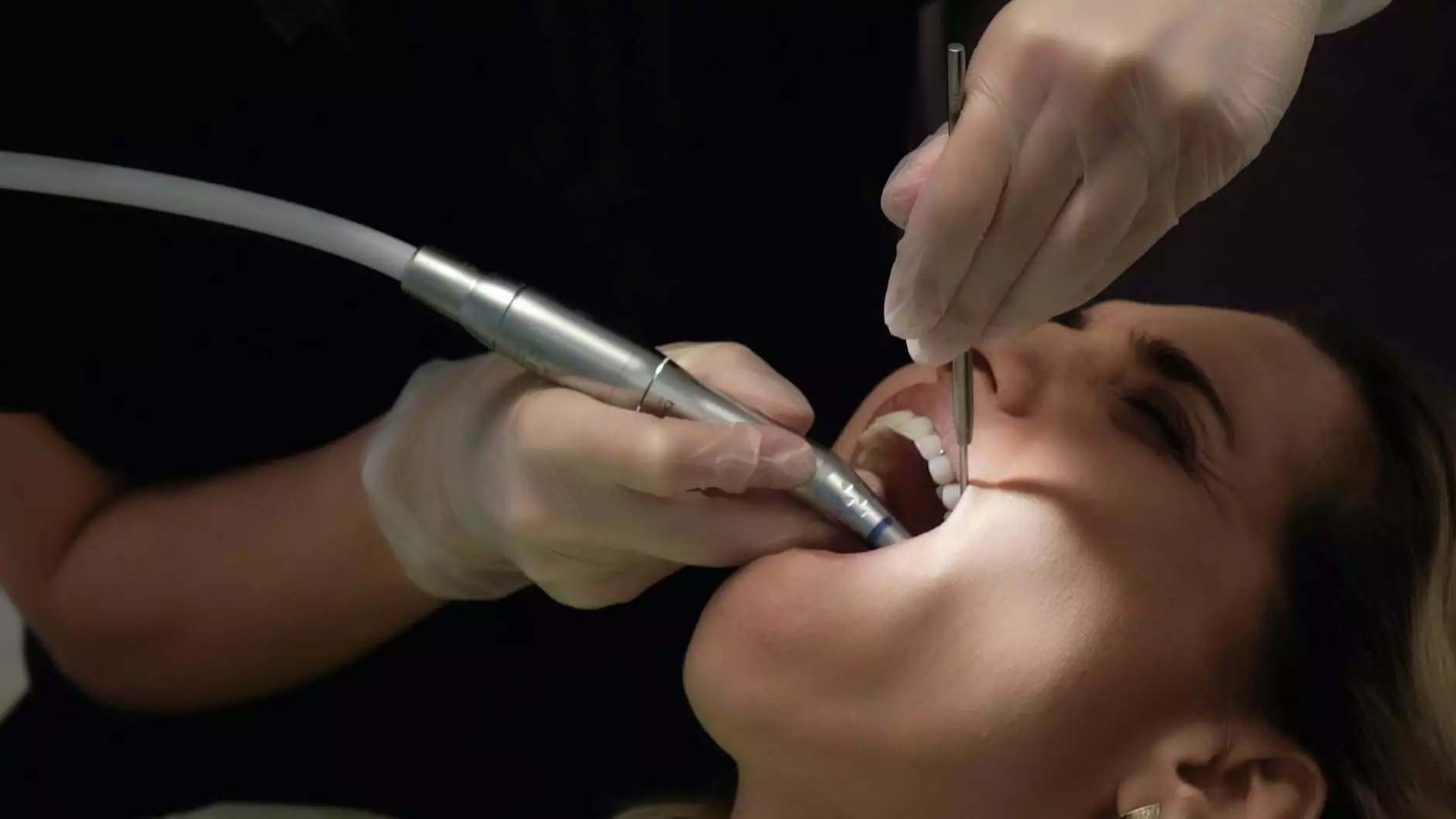The Ultimate Guide to Hard Night Guards for Teeth

When it comes to maintaining optimal dental health, protecting your teeth during sleep is essential. Many individuals unknowingly grind their teeth at night, a condition known as bruxism, which can lead to significant dental issues. This is where a hard night guard for teeth comes into play. In this comprehensive article, we will delve deep into the world of night guards, exploring their benefits, use cases, maintenance tips, and why they are crucial for your dental well-being.
What is a Hard Night Guard for Teeth?
A hard night guard, also known as an occlusal splint or dental guard, is a type of oral appliance worn over the teeth while sleeping. Unlike soft night guards, hard night guards are made of durable materials that provide maximum protection. They are specifically designed to prevent teeth grinding and clenching during sleep, which can cause
significant damage over time.
Why Choose a Hard Night Guard?
When you consider the various types of night guards available, you may wonder why a hard night guard for teeth is recommended over its soft counterparts. Here are some compelling reasons:
- Durability: Hard night guards are designed to endure the pressure exerted during teeth grinding, making them more effective over time.
- Protection: They offer superior protection against enamel wear, tooth sensitivity, and fractures caused by bruxism.
- Comfort: While they may take some time to get used to, many wearers find that hard night guards can be more comfortable for extended use.
- Customization: These guards are often custom-fitted by dental professionals, ensuring they perfectly match your dental structure.
Understanding Bruxism
Before diving deeper into hard night guards, it’s important to understand bruxism itself. Bruxism is the involuntary grinding or clenching of teeth, typically occurring during sleep or in stressful situations. Many factors can contribute to this condition, including:
- Stress and Anxiety: Emotional stress is one of the primary contributors to teeth grinding.
- Sleep Disorders: Conditions such as sleep apnea can increase the likelihood of bruxism.
- Misaligned Teeth: An improper bite or alignment issues can lead to grinding.
- Certain Medications: Some antidepressants and other medications can trigger bruxism as a side effect.
Benefits of Using a Hard Night Guard for Teeth
Utilizing a hard night guard can significantly impact your dental health and overall well-being. Here are the key benefits:
1. Prevents Tooth Damage
The primary function of a hard night guard is to act as a barrier between your teeth, thus preventing any wear and tear. Without this protective layer, continuous grinding can lead to:
- Enamel Erosion: Damage to the protective layer of your teeth, leading to sensitivity.
- Cracked or Chipped Teeth: Resulting from excessive pressure during grinding.
- Tooth Loss: Severe cases of bruxism can result in losing teeth.
2. Reduces Jaw Pain
Many individuals with bruxism experience jaw pain or discomfort. A hard night guard for teeth helps to align the jaw properly, distributing pressure evenly and thereby reducing stress on the jaw muscles. This can lead to:
- Less Tension: Decreased muscle strain and reduced headaches.
- Increased Comfort: By maintaining proper alignment, you can find relief from chronic discomfort.
3. Better Sleep Quality
Bruxism can significantly disrupt your sleep quality. By wearing a hard night guard, you decrease the risk of teeth grinding during the night, promoting a more restorative sleep. Improved sleep contributes to:
- Better Mental Health: A good night’s sleep can alleviate symptoms of anxiety and stress.
- Enhanced Physical Health: Quality sleep is essential for maintaining energy levels and overall health.
How to Get a Hard Night Guard
If you suspect you suffer from bruxism, consider consulting a dentist. They will evaluate your condition and discuss whether a hard night guard is the best option for you. Here’s the process:
1. Consultation
During your dental appointment, your dentist will assess the wear patterns on your teeth and ask about your symptoms. They may recommend a night guard based on your specific needs.
2. Impressions and Measurements
Your dentist will take impressions of your teeth to create a custom-fit night guard. This ensures maximum comfort and effectiveness.
3. Fabrication
The impressions are sent to a dental lab, where your hard night guard for teeth will be crafted using high-quality materials. This process usually takes a few days to a week.
4. Fitting and Adjustments
Once your night guard is ready, you will return to the dentist for fitting. Adjustments may be necessary to ensure it fits perfectly and is comfortable to wear.
Caring for Your Hard Night Guard
- Regular Cleaning: Rinse your night guard with cool water after each use and clean it with a soft brush and mild soap.
- Store Safely: Always place it in its case when not in use to prevent damage.
- Avoid Extreme Heat: Do not expose your night guard to hot water or direct sunlight, as this can warp the material.
- Check for Wear: Regularly inspect your night guard for signs of wear and tear. Replace it if you notice significant damage.
Common Concerns About Hard Night Guards
While hard night guards are generally safe and effective, patients often have concerns. Here, we address some of the most common ones:
1. Is it Comfortable to Wear?
Initial discomfort is common, especially if you are not used to wearing a dental appliance. However, with time, most individuals adapt and find their night guards to be very comfortable.
2. Can I Talk or Drink Water with It In?
Night guards are typically not designed for talking or drinking while they are in place. It is best to remove the guard for these activities.
3. How Long Will It Last?
With proper care, a hard night guard can last several years, although its longevity will depend on the severity of your bruxism and regular use.
4. Will It Stop Grinding Completely?
While a hard night guard significantly reduces teeth grinding, it may not eliminate it entirely. It is essential to address any underlying stress or sleep issues with your healthcare provider.
Conclusion
In conclusion, investing in a hard night guard for teeth is a proactive approach to protect your dental health and overall well-being. By understanding the benefits, getting fitted properly, and ensuring proper care, you can take a significant step towards mitigating the effects of bruxism. Don't let stress and grinding compromise your dental health; consider the advantages of a hard night guard today.
For more information or to schedule a consultation, visit medentalsf.com. Your path to healthier teeth starts with understanding how to protect them effectively!









